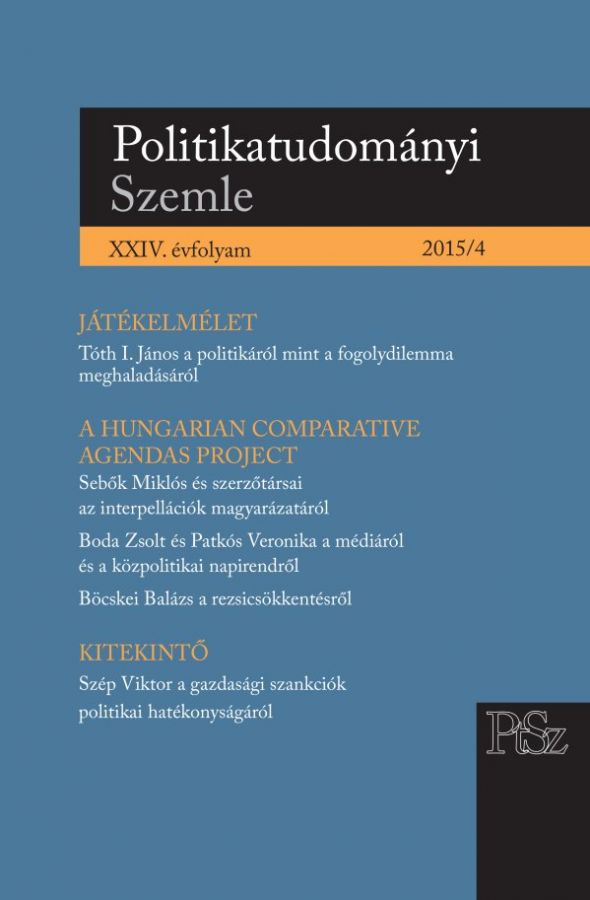Miért kérdeznek a képviselők?
Why Ask the Delegate?
FACTORS OF SUBMITTING INTERPELLATIONS IN HUNGARY (1990–2014)
Author(s): Miklós Sebők, Bálint György Kubik, Csaba Molnár, Gábor SzendiSubject(s): Politics / Political Sciences
Published by: MTA Politikai Tudományi Intézete
Keywords: Legislative studies; parliamentary questions; electoral connection; policy specialization;
Summary/Abstract: The paper investigates the factors shaping the number and content of interpellations, a form of parliamentary questions by MPs in post-regime change Hungary. A number of hypotheses are drawn from four theoretical propositions: political control; policy-oriented information seeking; parliamentary group leadership and constituency service. A new database consisted of 4096 observations for the period 1990–2014 of the Comparative Agendas Project is compiled in order to analyse these hypotheses and to better understand the legislative activity of MPs. Count data regressions are utilized in order to gauge the impact of government and opposition position; the source of the mandate in a mixed electoral system; and the position in the parliamentary faction on the number of interpellations presented. We fi nd that opposition MPs interpellate more, whereas representatives of single-member districts and regional lists interpellate less than their peers. Computer-assisted content analysis techniques and regressions are used to describe the text of interpellations in terms of their geographical and policy content. Our results show that representatives from single member districts and regional lists make more reference to local issues, although these references are not necessarily aimed at their own district or county. Furthermore, policy specialization (as measured by committee membership) increases the likelihood of submitting pertinent parliamentary questions.
Journal: Politikatudományi Szemle
- Issue Year: XXIV/2015
- Issue No: 4
- Page Range: 41-67
- Page Count: 27
- Language: Hungarian

